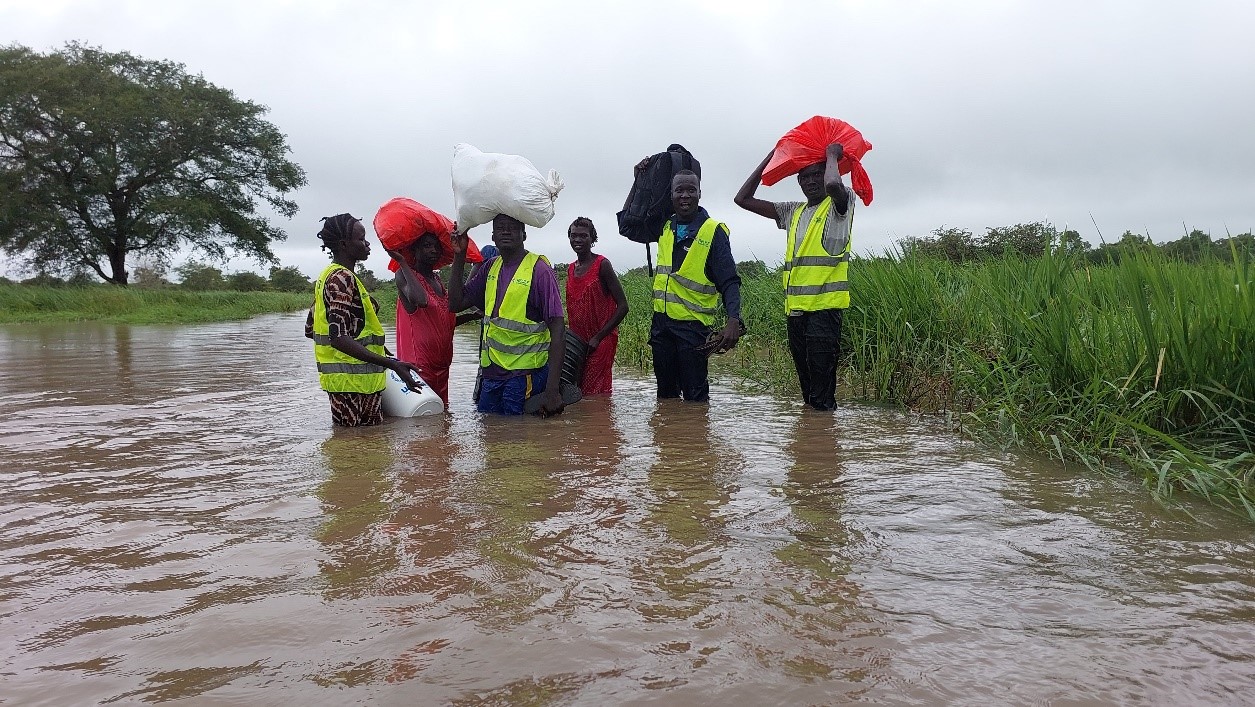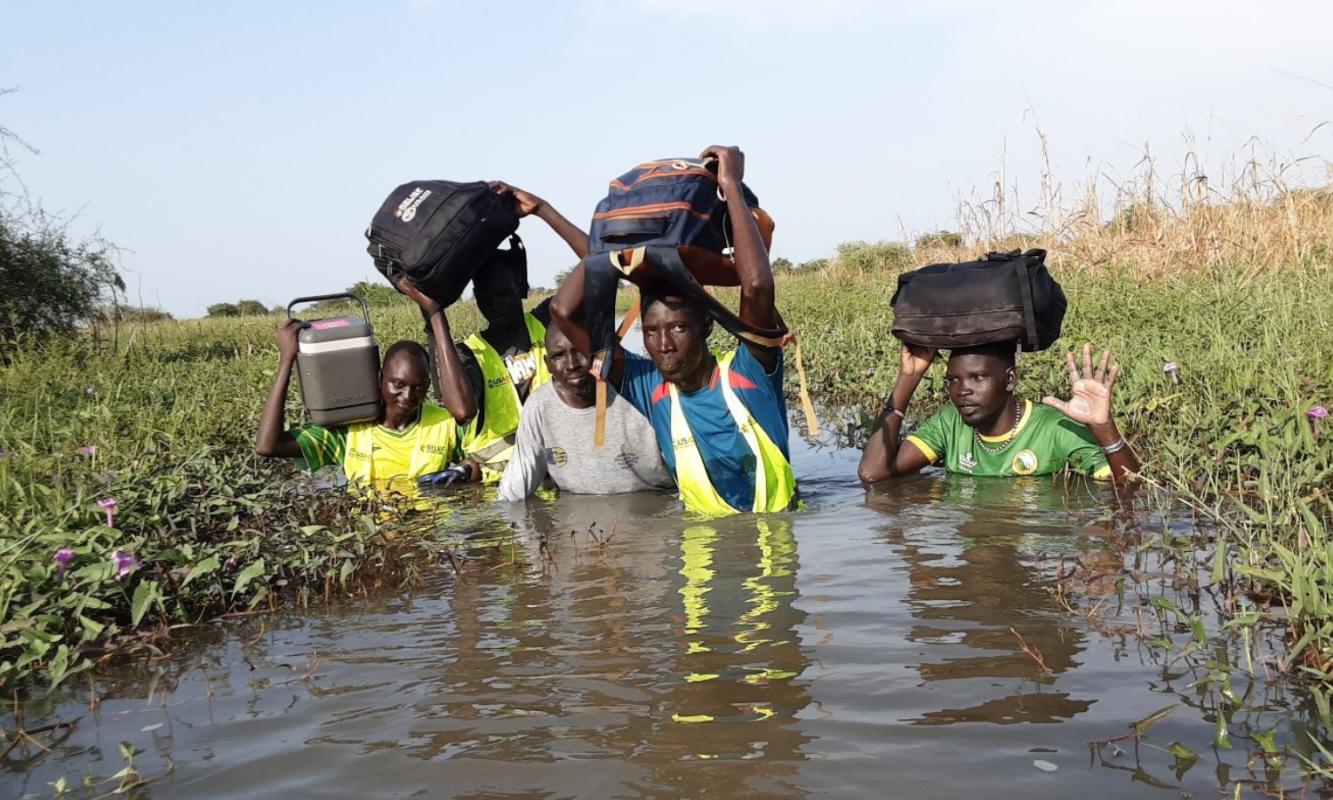
Mobile health teams carrying supplies through flood waters
Each year, from June to October, heavy rainfall in Ulang, Nasir, and Maiwut triggers severe flooding, submerging entire villages and displacing entire communities. In villages such as Purbor, floodwaters have reached staggering depths of 10 feet, sweeping away homes and forcing people to seek refuge in isolated areas. Under these circumstances, our Mobile Medical Unit team members rely on boats and travel on foot to navigate through the floodwaters.
Mobile Medical Units provide a range of services, including treatment for communicable and non-communicable diseases, sexual and reproductive healthcare, immunizations, mental health services, nutrition support, and WASH (water, sanitation, and hygiene) services.
Providing health services in these conditions can be incredibly challenging. Dense water plants block the way, making it nearly impossible for boats to approach the riverbanks. When the teams finally reach their destination, setting up mobile medical units (MMUs) presents another challenge. The flooded ground makes pitching tents difficult, and the constant relocation of affected families means healthcare workers often wade through swamps to reach them.
“In flood-affected communities, we often face shortages of essential drugs, and there’s a lack of proper consultation spaces or privacy for patients. We’re forced to work in open areas, sometimes under trees. To maintain patient privacy during consultations and deliveries, we make do with plastic chairs,” Dr. Emmanuel, who conducts patient consultations, explains.

